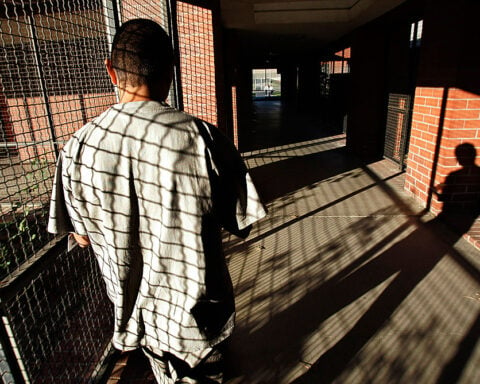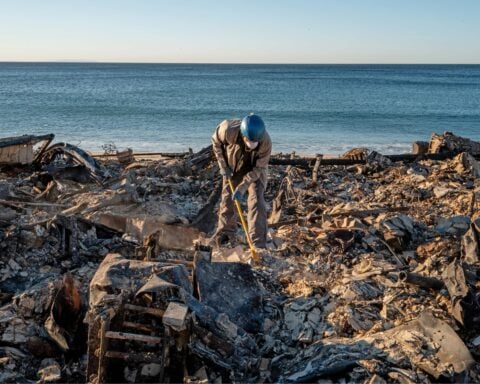ST. LOUIS (AP) — Most members of Congress have stood firmly behind Israel since the Hamas attack last month, but not Cori Bush. The Missouri Democrat called Israel’s response a “war crime” and an “ethnic cleansing campaign,” and was among the few House members who opposed a resolution supporting Israel.
Her unwavering stance has angered some in her district. St. Louis County Prosecuting Attorney Wesley Bell on Monday dropped a U.S. Senate bid to challenge Bush in next year’s 1st District Democratic primary, and moderate Democrats believe he could win.
Bush isn’t alone. She’s among a small group of Democrats viewed by critics as insufficiently supportive of Israel — both long before and now after Hamas’ Oct. 7 attack on Israel — or insufficiently critical of Hamas. Across those districts, moderates like Bell are being encouraged to run. In particular, Summer Lee in Pennsylvania, Jamaal Bowman in New York, Ilhan Omar in Minnesota and Rashida Tlaib in Michigan probably will face challengers.
All five have condemned Hamas’ attack and antisemitism, but they've all made statements seen as inflammatory by Israel's staunchest supporters and been critical of U.S. military aid to Israel.
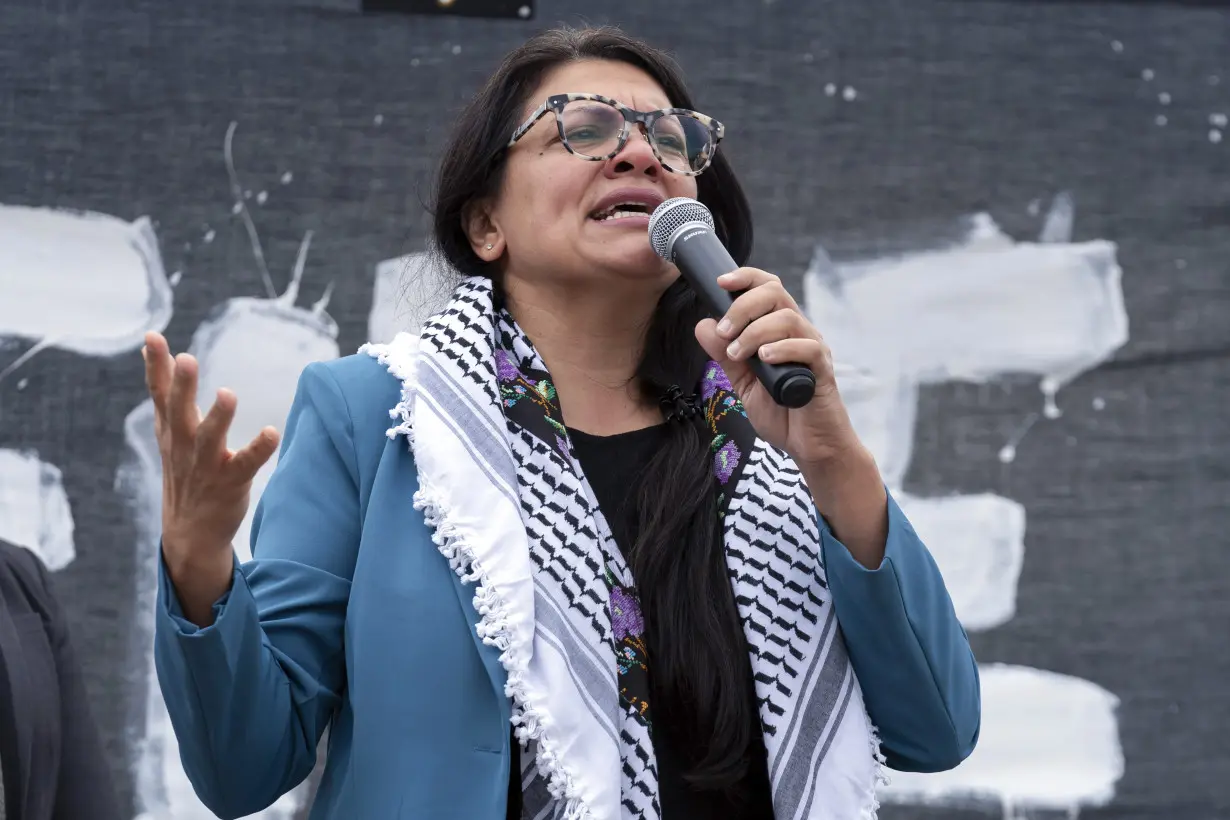
Bush and Omar accused Israel of “ethnic cleansing.” Summer Lee said it had committed “human rights violations.” And at a recent cease-fire rally, Bowman said: “We cannot allow the lives of anyone to be erased. This erasure of Palestinian lives and experience has been happening for decades.”
Adding to the fraught politics for Democrats is the fact that others could face pressure for the opposite reason — such as Shri Thanedar in Detroit, who represents a heavily Democratic district with a big Muslim population but has backed Israel.
Last week, the House overwhelmingly passed a resolution supporting Israel. Bush, Bowman, Lee, Omar and Tlaib were among nine Democrats who opposed the measure, saying it failed to call for a cease-fire, create a pathway to peace or express the need to protect Palestinian civilians in Gaza.

Bowman, Lee, Omar and Tlaib also were among the 17 sponsors of Bush’s resolution asking the Biden administration to call for a cease-fire. Critics of that resolution said it failed to mention Hamas’ unprovoked attack on Israel, hostages held by Hamas or that the U.S. considers Hamas a terrorist organization.
All five are considered progressives in the Democratic caucus and represent strongly Democratic districts, so the main threat to their re-election prospects would probably come from the Democratic Party.
Challenges to Bush and the others were possible even before the Hamas attack on Oct. 7 or Israel’s subsequent attack on Hamas in the Gaza Strip. But their stances after Oct. 7 have fueled calls for primary challengers.

Lee and Omar — who narrowly held off primary competitors in 2022 — may be particularly vulnerable.
The progressive group Justice Democrats, which has backed primary challengers against moderate Democrats around the country, blamed the primary challenges on the American Israel Public Affairs Committee, or AIPAC, and a network of Republican donors who help fund AIPAC’s efforts to elect unequivocal allies of Israel.
“Democratic members are truly out of step with their voters and their bases who do not want to see us barreling toward another war on their taxpayer dollars,” Justice Democrats’ spokesperson Usamah Andrabi said.
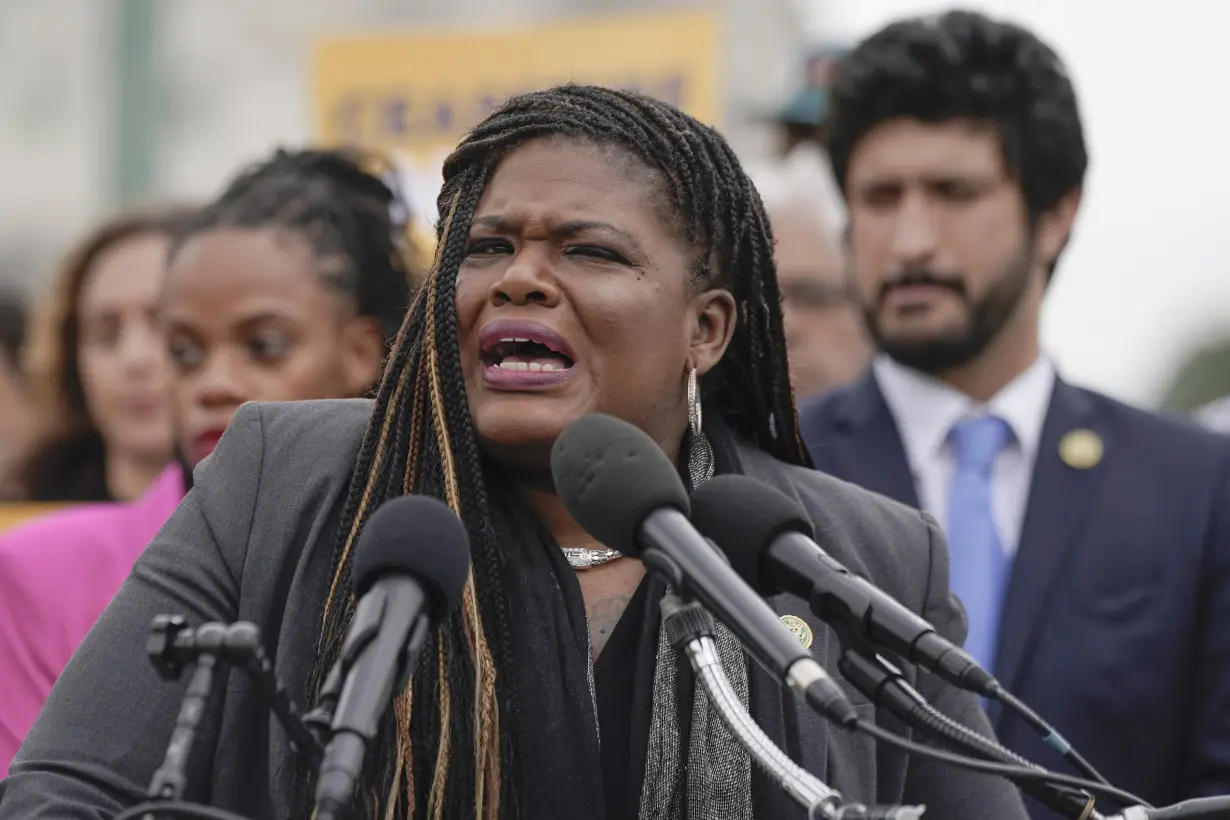
It is unfortunate, Andrabi said, that the House Democratic leadership has not taken a stronger stance against AIPAC’s efforts to knock off rank-and-file Democrats.
It remains unclear whether House Democrats will help incumbents fend off primary challengers through campaign fundraising arms. One organization, the Democratic Congressional Campaign Committee, said it could potentially get involved in a primary race to protect an incumbent, but declined to discuss specifics.
Before Oct. 7, House Democratic Leader Hakeem Jeffries, D-N.Y., issued statements of support for Omar and others, saying he will support the reelection of every House Democratic incumbent, regardless of ideology.

AIPAC declined to discuss its campaign efforts, saying “there will be a time for political action, but right now our priority is building and sustaining congressional support for Israel’s fight to permanently dismantle Hamas, which perpetrated this barbaric, terrorist attack on the Jewish state.”
Tlaib, the lone Palestinian American in Congress, has been an outspoken opponent of the Biden administration’s response to the conflict. On Friday, she posted a video on social media showing anti-war protests across the United States and accusing President Joe Biden of supporting what she said was genocide against the Palestinian people. “We will remember in 2024,” she said. The White House declined comment Saturday on the video.
While Tlaib defeated her primary opponent handily last year, pro-Israel groups have already signaled that they will focus on defeating her in 2024. The Democratic Majority for Israel — which bills itself as the “voice of pro-Israel Democrats” — began running ads against Tlaib in Detroit this week.
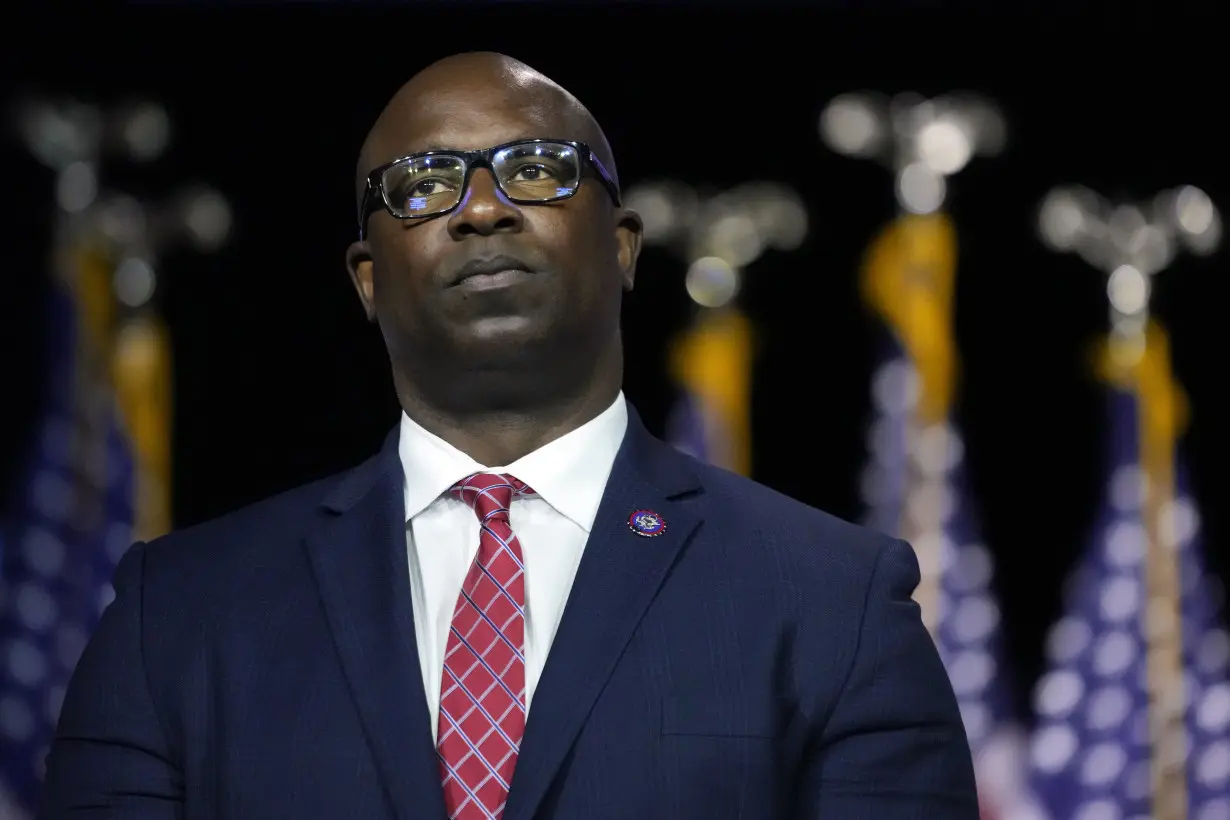
Tlaib’s metro Detroit House district includes a large Arab American population in Dearborn and a substantial Jewish constituency in Southfield.
Her congressional neighbor, however, is in a different situation: Tlaib and Thanedar have feuded publicly since he criticized her statements on Hamas' attack on Israel, and Thanedar — a freshman who represents Detroit — has since drawn criticism from Tlaib on how he runs his office.
Thanedar's Detroit district has been a center of pro-Palestinian pushback in the state, with thousands of demonstrators calling for a cease-fire in the city's downtown on Oct. 28.
He has a primary challenger in former state Sen. Adam Hollier — Thanedar beat Hollier by 5 percentage points in a nine-way primary in 2022 — but Hollier's campaign said his run isn't a response to Thanedar’s stance on Israel.
In Pittsburgh, Lee has faced broad criticism from the Jewish community, where members just marked the five-year anniversary of a gunman’s rampage through the Tree of Life synagogue, killing 11 people in the worst attack on Jews on American soil.
On Tuesday, a group of 36 rabbis and four cantors released a letter criticizing Lee for voting against the House resolution expressing support for Israel and for supporting Bush’s cease-fire resolution.
“It’s a rare day in any Jewish community when you have Reform, Conservative, Orthodox, Chabad and Reconstructionists together on one page,” said Rabbi Daniel Fellman of Pittsburgh’s Temple Sinai, who helped organize the effort. “But the reality is that Rep. Lee isn’t representing her constituents.”
Lee already has one declared opponent, and more may be coming.
Bhavini Patel, 29, said she would have run regardless of Lee’s stance on Israel. But, she said, Lee’s standing in the Jewish community shows how Lee doesn’t try to understand the people she represents.
In Minneapolis, a former school board member, Don Samuels, is considering a second campaign against Omar after he came within 2 percentage points of unseating her in 2022’s primary election.
That close race turned mostly on the future of policing in the city where George Floyd was murdered. It remains to be seen how Omar’s stance on Israel will play out in her district, which has a large Somali American Muslim population.
Omar has long been dogged by accusations that she is anti-Israel and antisemitic — accusations that have intensified since the Hamas attack. Since then she has criticized both Hamas for its decision to attack Israel and the Israeli government’s response. Her main focus has been the impact on civilians in the Gaza Strip. She has called for a cease-fire and for Hamas to release hostages.
In New York, current Westchester County Executive George Latimer is considering challenging Bowman.
Latimer said people had encouraged him to challenge Bowman long before Oct. 7, including overtures that had nothing to do with Israel. After Hamas’ attack, however, some in the Jewish community have intensified their efforts.
A group of more than two dozen rabbis last month publicized a letter they wrote asking Latimer to challenge Bowman, citing the congressman’s posture on Israel.
Latimer said he would decide in the coming months.
In Missouri, Bush — who has called Israel an “apartheid” state — said she is pushing a “pro-peace agenda.”
Writing on social media, she said, “Israel’s collective punishment against Palestinians for Hamas’s actions is a war crime. I strongly condemn Hamas & their appalling violations of human rights, but violations of human rights don’t justify more human rights violations in retaliation.”
Her challenger, Bell, said those types of comments “send the wrong message and we need to be sending to rogue nations and dictators and terrorist groups the message that that they cannot have missiles trained on Israel like we see with Hamas, like we see with Iran.”
The Rev. Darryl Gray, who like Bush is a leading civil rights activist in St. Louis, said he saw Bush as an advocate for peace. He said she believes that Israeli leaders are “not looking for de-escalation, not looking for cease-fire, but looking for revenge.”
___
Levy reported from Harrisburg, Pennsylvania. Steve Karnowski in Minneapolis, Joey Cappelletti in Lansing, Michigan, and Anthony Izaguirre in Albany, New York, contributed to this report.

 Italy, Albania, UAE sign deal for energy subsea interconnection
Italy, Albania, UAE sign deal for energy subsea interconnection
 European shares advance as bond yields ease; soft inflation powers UK stocks
European shares advance as bond yields ease; soft inflation powers UK stocks
 Bank Indonesia delivers surprise rate cut to support growth
Bank Indonesia delivers surprise rate cut to support growth
 Novak Djokovic breaks a tie with Roger Federer for the most Grand Slam matches in tennis history
Novak Djokovic breaks a tie with Roger Federer for the most Grand Slam matches in tennis history
 China's RedNote: what you need to know about the app TikTok users are flocking to
China's RedNote: what you need to know about the app TikTok users are flocking to
 British author Neil Gaiman denies ever engaging in non-consensual sex as more accusers come forward
British author Neil Gaiman denies ever engaging in non-consensual sex as more accusers come forward





